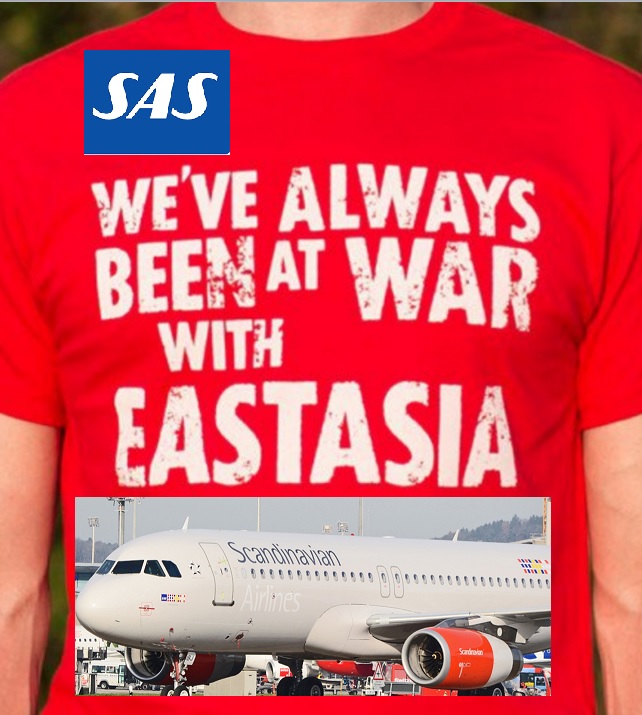SAS has renamed fuel surcharges “Domestic/International fees”.
A dozen years ago airlines introduced fuel surcharges but with fuel half off its high, and with governments regularly taking the position that a fuel surcharge must approximate the actual cost of fuel, airlines have simply renamed the fee.
Scandinavian has now taken this approach. Some airlines simply call fuel surcharges ‘carrier-imposed surcharges’ now. In either case, these words have no meaning. It’s a surcharge, instead of for fuel it’s not for anything in particular. Carrier-imposed describes who charges is. The airline does. In other words, it’s a part of the price.
Roughly speaking this doesn’t matter for paid airline tickets, since those are advertised in most contexts at full price (including the surcharge). You know the price up front.
But fuel surcharges are something many airlines use to scam their frequent flyers. Since the idea of some programs is that miles cover the base fare only, moving part of the fare out and calling it a surcharge lets them charge a high fee for the privilege of redeeming miles. Qantas eliminated fuel surcharges on flights originating in Australia, but continued to charge them on frequent flyer program members. They become an award redemption fee. And an expensive one that will vary by destination but that can reach $800 or $1000.
In renaming the fee, airlines have stripped words of all meaning.



@Gary, what’s the fix here? Brazil’s approach? Hong Kong? Sorry if I’ve missed your thoughts previously, but what is the solution in your opinion? Market-based? Rulemaking? Legislation?
What is the point of the headline?
@View “words have meaning”
@Nick not everything dishonest or underhanded needs a fix
A good idea is to ban these carrier-imposed / fuel surcharges. If the airlines want to charge more money, they can up the base fare. Similarly, any mandatory “resort fees” should be banned. If they want to charge $25 more, just raise the rates by $25.
The solution is that rational actors will only tolerate as much value erosion as is possible before they begin to no longer derive value from the programs and accrue another form of credit card rewards. Haven’t gotten there yet but getting awfully close. Like if you like to go to Europe in business class, a Citibank AA card is probably not going to do it for you, with surcharges on BA and little availability on other carriers
It’s a tax loophole. Seems like one IRS ruling that they are subject to tax would rapidly end the practice.
Don’t understand the title?
@Tim
Read more Orwell
If memory serves, it’s a reference to “1984” in which the totalitarian government (“Big Brother”) is able to manufacture the reality it wants its citizens to believe, via meaningless, deceptive, or untrue phrasing (aka “Newspeak”).
@beachfan how would charging tax on surcharges eliminate them? Regardless of tax, it’s an income. Do you stop working because you have to pay tax?
@Thanh,
First, I do not know if “carrier imposed surcharges” are subject to the 7.5% excise tax like base fares surely are. (I would tend to think they are, as, in substance they are part of the fare and, being required, are in no way ancillary to the base fare). But if the IRS is currently permitting carrier imposed surcharges to be exempt from excise tax – like baggage fees are – they create a substantial incentive to engage in shenanigans.
Carrier-imposed surcharges would be subject to the 7.5% federal excise tax on domestic airfares… if they applied to domestic tickets